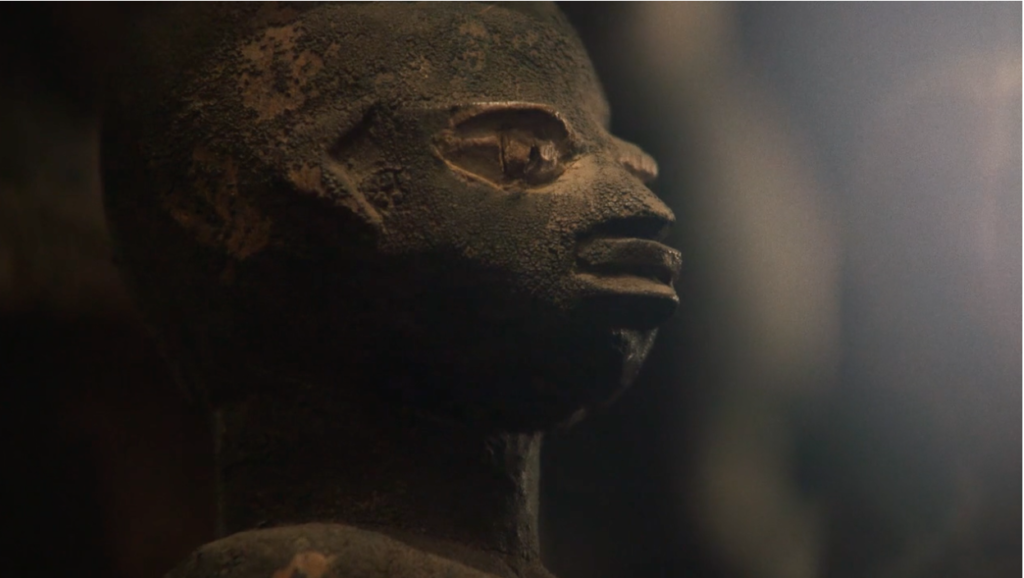Dahomey, a docu-film produced by Franco-Senegalese filmmaker Mati Diop, just won the prestigious Golden Bear award at the Berlin Film Festival . Among the panel members was the distinguished Kenyan-Mexican actress Lupita Nyong’o, who presented the award. The documentary intricately probes the thorny issues surrounding Europe’s contentious return of looted antiquities to Africa.
This comes just in time as the issues of repatriation and restitution of Benin bronzes have garnered a lot of attention. Recent reports in the art world herald a new era of restitution, signaling hope for the repatriation of artifacts to their rightful owners. Narrated in part by the gravelly, imagined voice of one of the artworks, the unconventional feature offers a poignant exploration of the legacy of colonialism. Moreover, it explores the intricate interplay between history and identity in present-day Benin.

In her impassioned speech, Mati Diop articulated,’
“First time I imagine what a restitution might like might look like in reality. I first heard a sound, a frequency, something trembling, like earthquake. It was here in Berlin at the field premiere, meeting the audience for the first time. It was the sign of a wall collapsing, the wall of silence, the wall of denial that each and every one of us can must together tear down. We can either get rid of the past as an unpleasant burden that only hinders our evolution, or we can take the responsibility of it, using it as a basis to keep us moving forward.”
Restitution is not merely about returning stolen artifacts; it is about rectifying historical injustices. Moreover, it is also important in restoring cultural heritage and fostering reconciliation between nations. Such films and awards play a crucial role in raising awareness about the significance of repatriation efforts. By shedding light on the plight of affected communities, they catalyze dialogue, advocacy, and action on an international scale.
In addition, these milestones in the repatriation journey serve as powerful symbols of progress and justice. They signify a collective acknowledgment of past wrongs and a commitment to rectify them. Each award and accolade bestowed upon films like Dahomey amplifies their impact. Furthermore, it ensures that the voices of marginalized communities resonate louder and reach broader audiences worldwide.
As the global community continues to reckon with the legacies of colonialism and exploitation, films like Dahomey serve as poignant reminders of the ongoing struggle for justice and restitution. They inspire hope for a future where cultural heritage is respected, preserved, and returned to its rightful owners. Moreover, they foster a more inclusive and equitable world for future generations.


